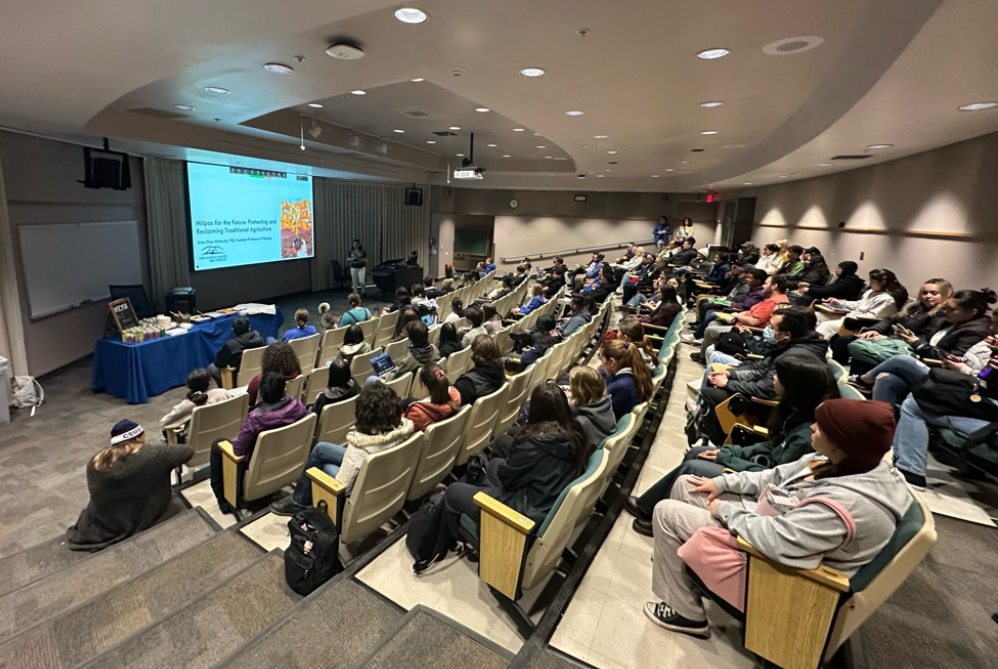On Thursday, Feb. 13, more than 100 students, faculty, and staff crowded into Academic Hall 102 to hear biology professor Dr. Erika Díaz-Almeyda speak. As part of this semester’s seminar series focused on international research, her presentation was titled “Milpas for the Future: Protecting and Reclaiming Traditional Agriculture.”
Milpas are a Mesoamerican polycrop farming practice also known as “The Three Sisters”: corn, beans, and squash. The practice dates back over 9,000 years and remains culturally significant to Indigenous communities throughout Mesoamerica.
Dr. Díaz-Almeyda’s research is interdisciplinary and focused on microbial diversity, soil function, and traditional ecological practices involving the Milpa.
Dr. Díaz-Almeyda grew up in Mexico City where locals often said, “Sin Maíz, no hay país” (“Without Corn, there is no country”). Years later, new research on the need for sustainable alternatives to industrial monocrop farming inspired her to reexamine her cultural connection to milpas.
Her research has shed new light on how milpas function at a microbial level, particularly how the high level of microbial diversity in milpas produces healthy soil. Through this research, it is abundantly clear that we need to support people who are still doing this practice and those who want to get started.
Although the impacts of climate change continue to be felt, Mesoamerican communities express greater concern about economic forces that destabilize their land, communities, and prevent knowledge keepers from passing down their wisdom to future generations. As a result, traditional milpa farming practices are in danger.
After reading the work of Mayan poet and environmentalist Pedro Uc Be during the COVID-19 pandemic, Dr. Díaz-Almeyda started changing the focus of her research. She says we cannot look at microbes in isolation from Mesoamerican communities and how they practice milpa, and we must instead see milpas as multifunctional ecosystems which not only conserve biodiversity, but are also key to human health by giving access to healthy foods and an active lifestyle, and as a social space that creates community.
Dr. Díaz-Almeyda is currently working with Pedro Uc Be and other scholars doing interdisciplinary research on milpas. This approach intends to gain a deeper understanding of how milpas serve communities’ biological, social, and cultural needs.
With the support of The Innovation Hub, Dr. Díaz-Almeyda established the Milpa HUB on campus. Driven with the support of students, the milpa at CSUSM is breaking new ground as a space for community and interdisciplinary research. If you would like to stay informed about the Milpa HUB activities, you can email [email protected].
Dr. Díaz-Almeyda ended her seminar hoping we left “imagining a better future.” One thing is certain, Milpa research has found fertile soil at CSUSM.


